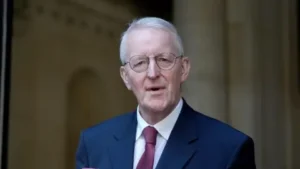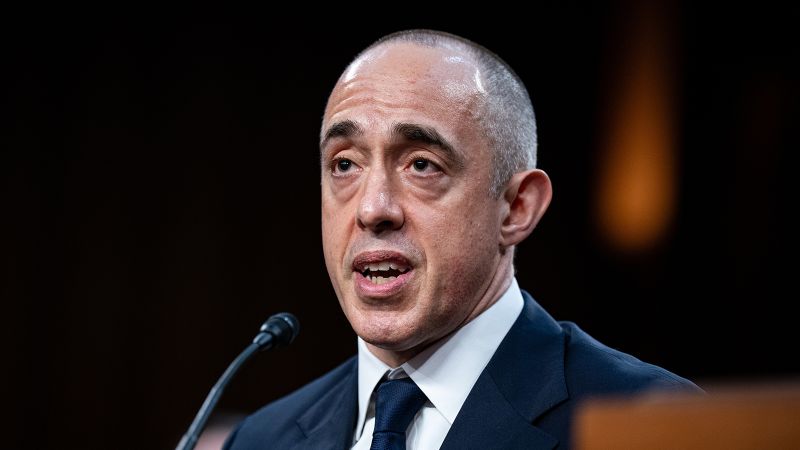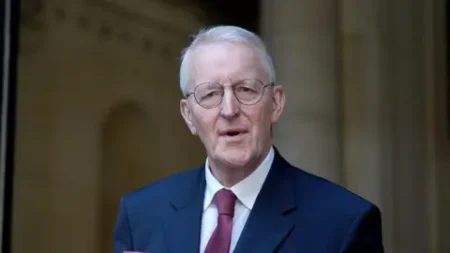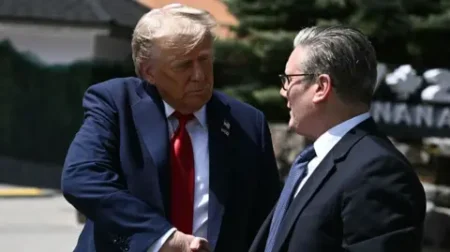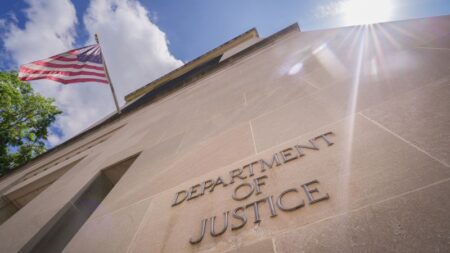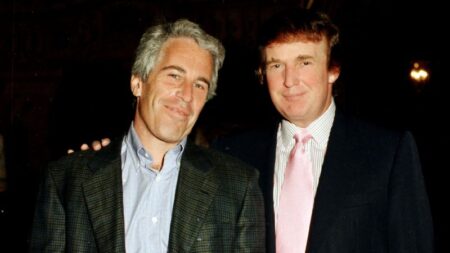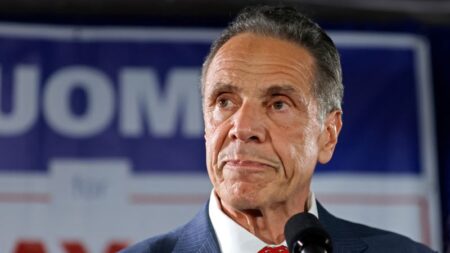On a pivotal day in US judicial politics, more than 75 former federal and state judges joined forces to officially urge the Senate Judiciary Committee to reject the nomination of Emil Bove, a prominent attorney closely associated with former President Donald Trump. Bove has been nominated for a distinguished judgeship on the 3rd US Circuit Court of Appeals. The collective expression of disapproval comes as a significant moment, especially in the eyes of those who have dedicated their careers to the judicial system.
The judges articulated serious concerns regarding Bove’s professional conduct and ethical judgments, highlighting a troubling legacy marked by alleged misconduct while serving as a senior official within the Justice Department. The letter cited various controversies, particularly regarding Bove’s involvement in investigating FBI and DOJ officials associated with the January 6, 2021, insurrection, and his decision to drop federal charges against Mayor Eric Adams of New York City. The critics allege that such actions reflect a troubling pattern of abusing power and mistreating law enforcement officers—scathing accusations that raise significant questions about his fitness for the judicial position.
Further, the correspondence drew attention to alarming allegations that Bove had conspicuously plotted to violate judicial orders, aiming to enforce illegal actions to further Trump’s deportation agenda. Citing a whistleblower named Erez Reuveni—who has indicated readiness to present compelling evidence and testify under oath before the Senate—the judges pressed the committee to listen to the testimony, emphasizing their belief that it is not merely appropriate but indeed essential for the Senate to gather all necessary evidence regarding Bove’s nomination.
Despite the gravity of these allegations, Bove, during his confirmation hearing, firmly denied accusations of corruption and misconduct. He portrayed himself as an ordinary lawyer from a small town, steadfastly asserting, “I am not anybody’s henchman.” His intent was clear: to dismantle the allegations against him and to present a defense of his character as someone who unexpectedly found themselves embroiled in high-stakes political affairs.
The critique of Bove’s nomination, however, is not limited to claims of misuse of power. Notably, various retired federal judges, including the esteemed J. Michael Luttig—a recognized conservative legal scholar and critic of Trump—have joined the call against Bove’s ascent to the bench. Luttig, who was nominated by President George H.W. Bush, has a distinguished background in law and openly endorsed Vice President Kamala Harris in the previous election cycle, increasing the significance of his opposition to the nomination.
With the Senate scheduled to conduct a confirmation vote, the ramifications of this decision become apparent. Notably, GOP Senator Thom Tillis, often seen as a swing vote, has indicated a tendency to support Bove despite past remarks about not backing nominees who failed to denounce the January 6 violent insurrection. This apparent discrepancy raises additional questions regarding party politics and principles in the current judicial nomination landscape.
The former judges collectively stated that Bove’s nomination represents a profound conflict of interest, a striking precedent where a former criminal defense attorney of a sitting president is nominated to the federal judiciary. They articulated the necessity of thorough vetting for judicial appointments, as these roles hold far-reaching impact on countless lives. Compromising the integrity of the courts, they warned, could lead to judicial power being utilized for personal loyalty rather than abiding by constitutional obligations.
If confirmed, Emil Bove will acquire one of the dozen judgeships with appellate authority over federal cases from several states, including Pennsylvania and New Jersey. With a decade-long background as a federal prosecutor, Bove’s career has been characterized by turbulent transitions and actions prompting resignations within the Justice Department. His tenure as an attorney for Trump encapsulates a controversial chapter in the broader narrative of balancing power, ethics, and judicial independence.
This unfolding saga continues to draw attention as voters and lawmakers alike seek to comprehend the broader implications of judicial appointments within a politically charged environment. As the Senate prepares for the upcoming vote, the collective voice of the legal community and its concerns about democratic principles and judicial integrity remain powerful themes echoing through these proceedings.



